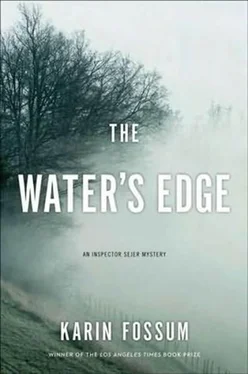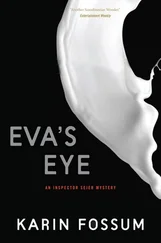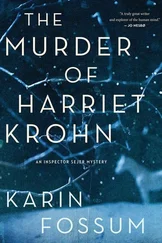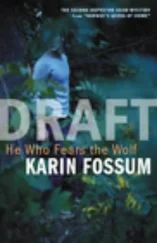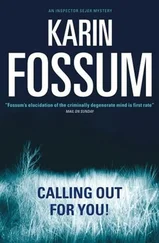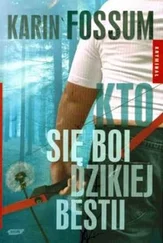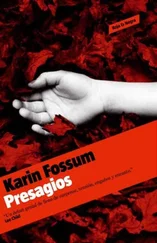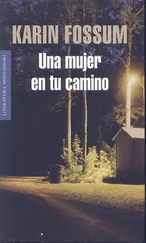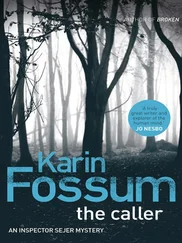'So what did you do?' Sejer asked.
'I would watch him in secret,' he said. 'I would dream and fantasise. Needs must.'
'So you prefer boys?'
'Yes,' Brein said. 'Boys. I like their small bodies and their delicate limbs. I like that they are frightened and shy, I like everything about them, I like the smell and the sound and the taste of them.' He was growing more animated, his cheeks were gaining colour.
'How do they taste?' Sejer wanted to know. His face was deathly serious.
'Well, what can I say?' He shook his head. 'Like green apples.'
His words were followed by silence. The only noise was a low humming from the fluorescent tube on the ceiling.
'Can I smoke in here?' he asked hopefully.
'No.'
Sejer's reply was followed by another silence and Sejer waited. It would take time to uncover the truth, but he did not mind because he wanted to know. He wanted to map the crime down to the smallest detail. He wanted to measure and weigh it, turn and twist it, view it from every possible angle. His heart was beating calmly. He felt in control, in here he reigned supreme, in here he was, as Skarre put it, the man who could charm the birds off a tree.
'Were there any episodes you found particularly difficult when you were growing up?' he asked. 'It's quite all right to talk about such things.'
Brein gave him a despondent look. 'Everything was difficult,' he said. 'It was when I entered my teens that the trouble really started. Isn't it about time you got yourself a girlfriend, young man? You know what aunts and uncles are like.'
'I do.'
'So, of course, I was isolated,' Brein went on. 'I didn't fit in. I spent a lot of time on my own. Besides, I felt deeply ashamed about it all. People can't be serious when they tell us we need to come forward with our feelings, they've no idea how bad it is.'
'Yes,' Sejer said. 'I have an idea how bad it is.'
'I can only dream about what the rest of you take for granted,' Brein said.
'No one can take love for granted,' Sejer corrected him.
'No?'
'The world is full of people who watch the happiness of others from the sidelines.'
Brein rolled his eyes. 'Look around you,' he snorted. 'There are couples everywhere, walking down the street wrapped around each other; I can hardly bear to look at them.'
'Many walk alone,' Sejer countered. 'You're not the only one who is single. But perhaps you harbour an illusion that everyone else is granted everything their heart desires. It's not like that. What was your childhood like?'
'It was bad,' Brein said bitterly. 'And I don't mean to make excuses for myself, but it's only right that someone should know how bad it was. Perhaps you think my parents used to beat me, but they never raised a hand to me, it was far worse. There was coldness and hostility. My mum was always angry, it poured out of her in one constant, nagging stream. And she made so much noise, she slammed doors, she stomped around the house, her backside was the size of a rhinoceros. And she had a bizarre notion that you should always tell the truth, because she didn't want to be two-faced. So she always spoke her mind. It was the truth at all costs, in every situation. The truth in the shop, the truth across the fence to the neighbour, to door-to-door salesmen and to me. That I wasn't much to look at, that I wasn't all that bright. She scolded me and my dad. He would jump at the smallest chance to get out of the house. He would invent errands because he couldn't cope with her ranting. And they looked odd, the pair of them. Mum's build was coarse, loud and masculine, while dad was delicate and effeminate. It was like something was always brewing in the house, if you get my drift. And sometimes she would lock me out. I mean if I came home late, if she had told me a time and I had missed it, then I had to sit on the doorstep until she deigned to let me in. She would look at me, feign surprise and say, what are you doing out here? One winter, I actually froze to the top step. Another time I gave up thinking she would let me in at all, so I went down to the cellar. I spent the night there on some old sacks.' He let his hands flop helplessly. 'That was tough for a small boy.'
'Is she still alive?' Sejer asked.
'She got cancer,' he said. 'Her body was riddled with it, tumours everywhere. One of them was in the corner of her eye, it was pressing on her eye, it was disgusting. It looked like it might explode at any time. I didn't know where to look. You might say she was being punished for her neglect and betrayal, because she lay there for over a year, in great pain. I don't know how many hours I spent by her bedside, waiting. Listening to her breathing and hoping with all my heart that she would die. But she always pulled through and there would be more moaning and pain. I remember her last moments vividly. I was dozing on a chair. Suddenly she opened her eyes and screamed 'That's enough!' She twitched one last time and then she was gone.'
'How did you relieve your desire?' Sejer asked. 'I presume you found a way?'
He folded his hands on the table. His fingers were long and thin with sharp knuckles.
'I used pictures which I found in magazines, pictures of young boys. In PJs or swimming trunks. I made do with that. But once I was an adult I took a decision. I was adamant that I would have a proper life, like everyone else. I wanted to be like everyone else, it was crucial to me. I have some relatives up north, in Kirkenes. On a trip to see them I met a Russian lady. A lot of Russians cross the border for all sorts of reasons, but Irina had come to sell embroideries. Russian women really know how to sew.'
He glanced quickly up at Sejer as though looking for signs of contempt, but all he found was gravity and patience.
'We got talking,' he said, 'and I offered to buy her a cup of tea, and we talked for hours. Three months later we were married, and we had two daughters.'
'Are you still in touch with them?'
'No.'
'Have you tried to stay in touch?'
'Yes, of course, I have no one else. But I think Irina must have painted me in a bad light because they don't seem to be very interested. I wonder what she has told them. I haven't dared ask.'
'What are they called? How old are they?'
'Rita and Nadia, they're nineteen and twenty-two.'
'Do you miss them?'
Brein sighed. 'You know how it is. They don't want to know someone like me. They're great girls, but it's best that I stay away.'
'Is that what you think? That you should hide away?'
'Yes,' he replied, 'that's what I think. And that's what you think, too. People would drive us into the sea, given the chance.'
Sejer looked at him calmly. 'There are clear reasons why you have developed this tendency,' he said, 'and it hasn't been established yet whether you need to be ashamed of it. A few things have been beyond your control; that applies to all of us. However, it could be argued, as far as the law is concerned, that you have a duty to take some precautions. And you didn't take them, did you?' Sejer looked at him closely. 'Jonas August is dead.'
Brein nodded. 'I just can't bear it,' he whispered.
'What happened to your marriage?' Sejer asked.
'It went down the drain, obviously,' he said. 'You know I had other needs. I felt I was playing a game, that I was false and miserable. And Irina felt neglected. So a distance was created between us and it grew over the years. I suppressed my real feelings until I was worn out. You don't know what it's like,' he groaned. 'It's exhausting.'
Sejer nodded.
'One morning she packed her suitcase and left,' he said, 'and I was all alone again. It was as if all ties were severed, I was cut adrift, I had nothing to hold on to. I was furious and angry and scared, I couldn't see straight. Other people don't have to worry,' he said. 'They're proud of how they feel, they think their feelings are good. That's what I think of mine. I would sit in my car and watch the kids from afar, while I daydreamed and fantasised.'
Читать дальше
